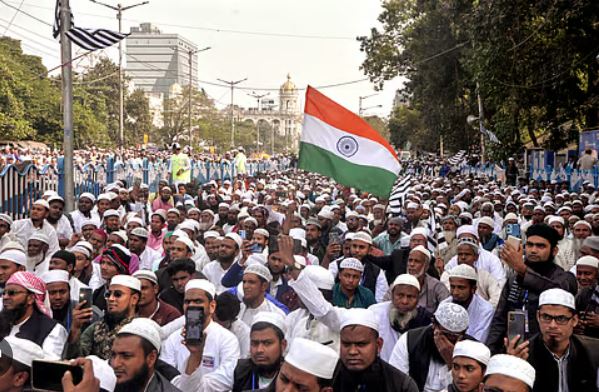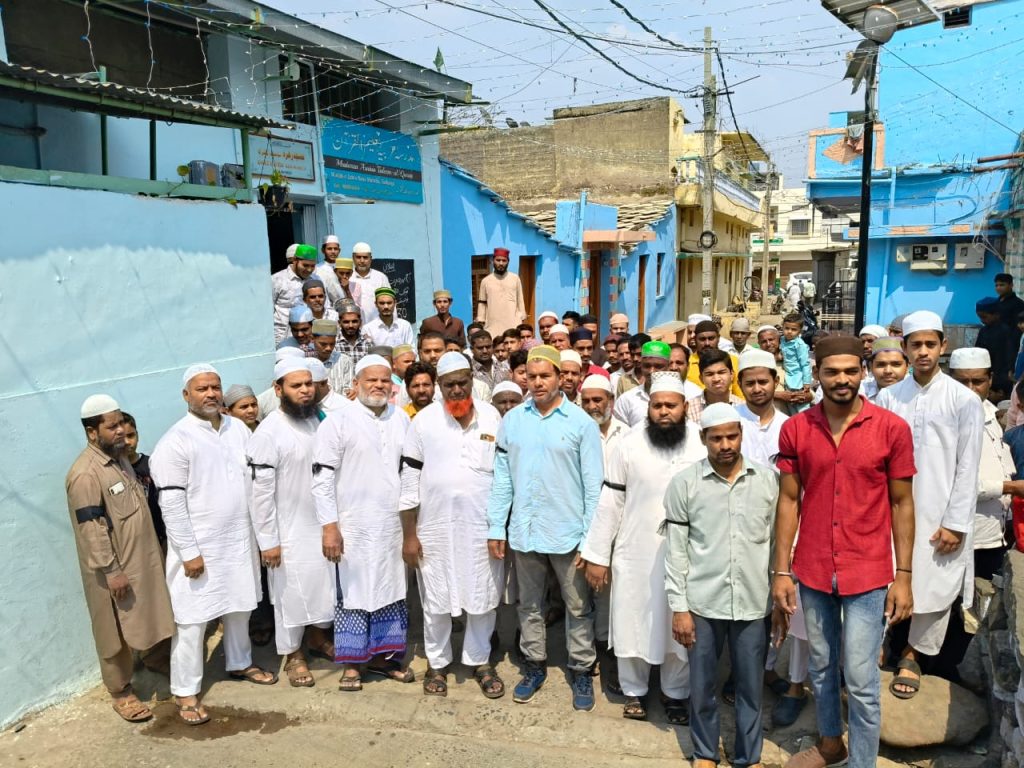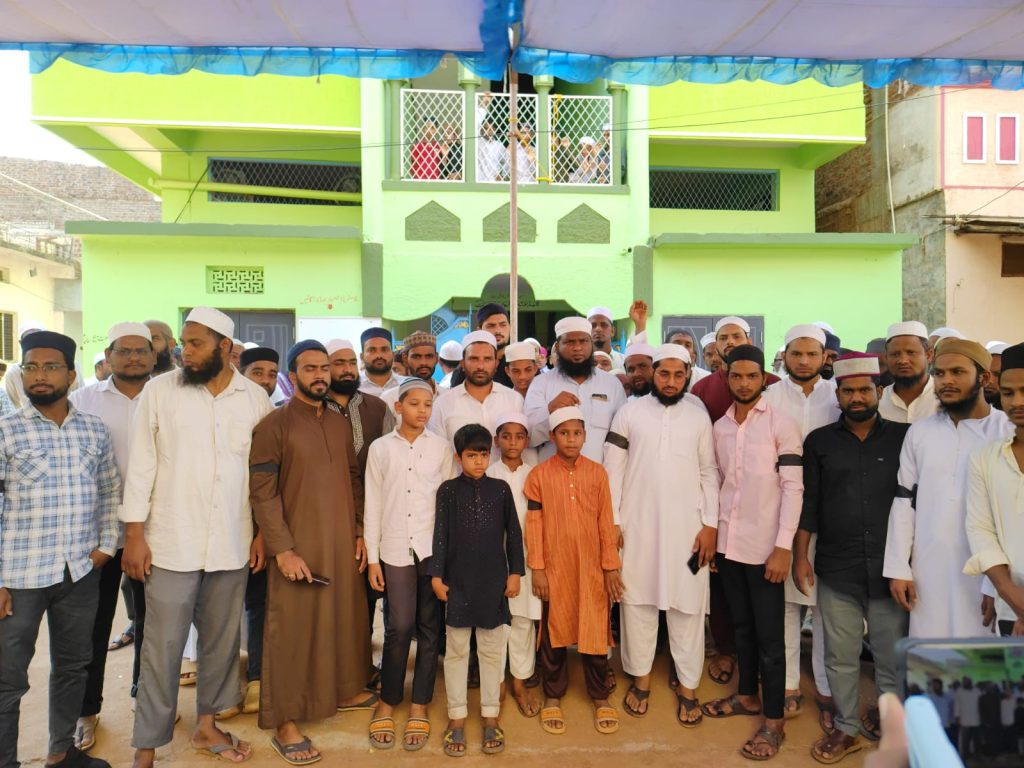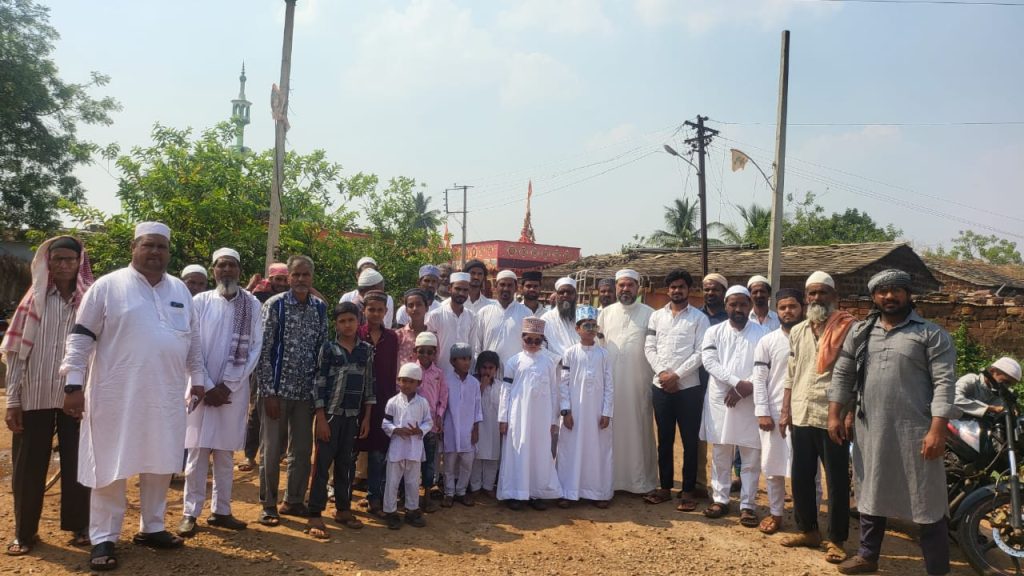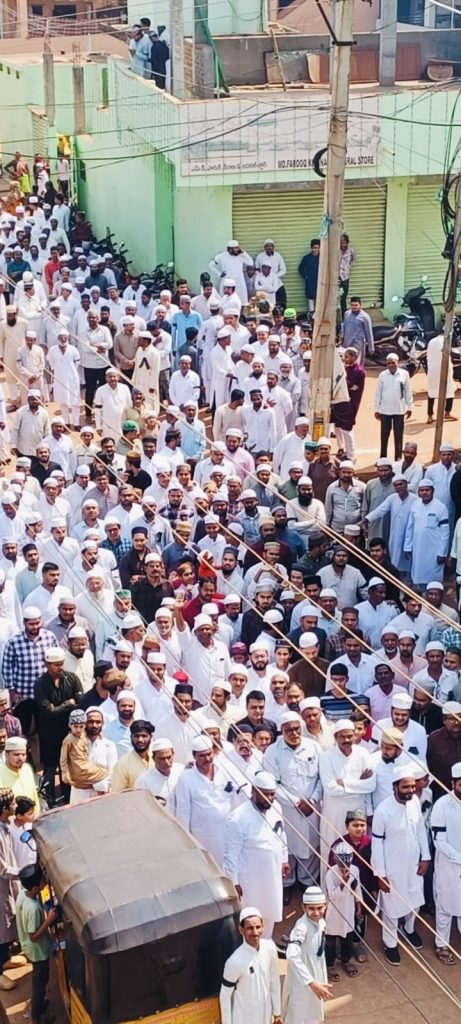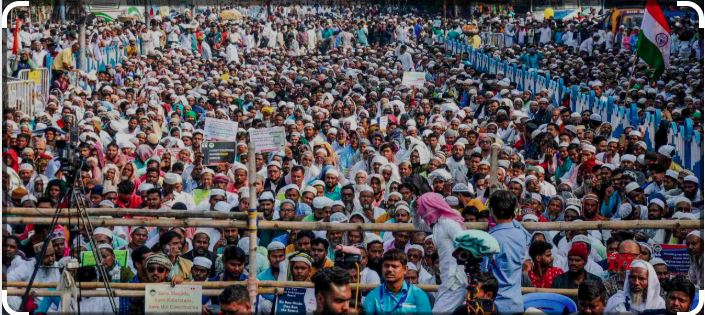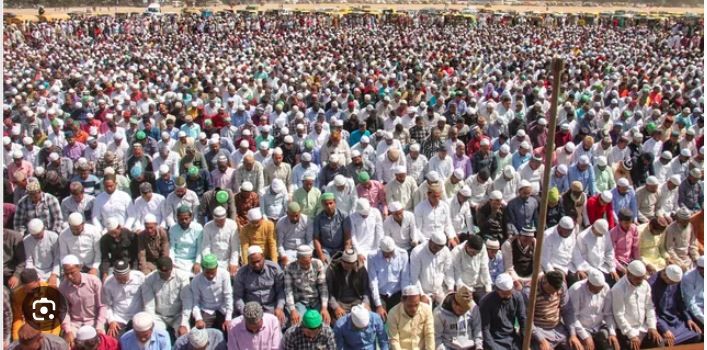Nationwide Protest Against Waqf Amendment Bill 2025 – Historical and Legal Perspective
By Dr Jan Nisar Moin
New Delhi, March 27, 2025: Responding to the call of the All India Muslim Personal Law Board, Muslims across the country staged protests against the Waqf Amendment Bill 2025.
The worshippers of Masjid Zahra, Gulbarga, led by Telangana Freedom Fighter Dr. Jan Nisar Moin, organized a powerful demonstration, applying pressure on allied political parties through peaceful protest.
The Waqf Amendment Bill 2025 is being condemned as a conspiracy to seize control of mosques, Eidgahs, Madrasas, Dargahs, khanqahs, Graveyards, and charitable institutions belonging to Muslims.
If passed, the bill would bring waqf properties under direct government control, potentially depriving the Muslim community of its religious and welfare institutions.
Historical Background and Legal Protection of Waqf
The concept of waqf dates back centuries in Islamic history. During the Abbasid Caliphate, the practice of dedicating properties for education, healthcare, and public welfare became widespread.
In the Mughal era, waqf laws were systematically organized, and even the British colonial rulers recognized and upheld waqf principles.
In independent India, the Waqf Act of 1954 and later the Waqf Act of 1995 provided legal protection to this system.
These laws prohibit the sale or transfer of waqf properties, ensuring their administration remains under waqf boards.
However, the Waqf Amendment Bill 2025 challenges these fundamental principles by attempting to place waqf assets under state control.
Legal and Political Response
Muslim representative bodies, including the All India Muslim Personal Law Board, Jamiat Ulema-e-Hind, and various state waqf boards, have termed the bill a violation of fundamental constitutional rights.
Legal experts argue that the bill contradicts Articles 25, 26, and 30 of the Indian Constitution, which guarantee religious freedom, protection of places of worship, and the rights of minorities over their educational and welfare institutions.
Protests and Future Course of Action
Muslims across India wore black armbands on Jumu’atul-Wida (the last Friday of Ramadan) as a symbolic protest against this oppressive bill.
A sit-in demonstration was held at Madarsa Arabia Taleem-ul-Quran, Masjid Zohra, Naya Mohalla, Haj Committee Road, Gulbarga, Karnataka.
Community leaders including Muhammad Asghar Ali, Muhammad Karim, Muhammad Azhar, Syed Ahmed (social activist), Muhammad Nusrat, and representatives from various social and religious organizations participated in the protest.
They demanded that the government withdraw the bill immediately, warning that further legal and public resistance would follow if the bill was not repealed.
The Waqf Amendment Bill 2025 is seen as a direct assault on the religious and social identity of Muslims.
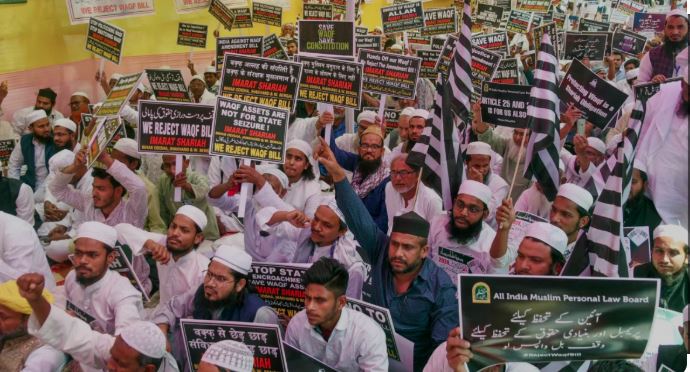
The nationwide protests reflect the determination of Indian Muslims to defend their religious and social institutions at all costs.
 Times Of Pedia Times of Pedia TOP News | Breaking news | Hot News | | Latest News | Current Affairs
Times Of Pedia Times of Pedia TOP News | Breaking news | Hot News | | Latest News | Current Affairs
